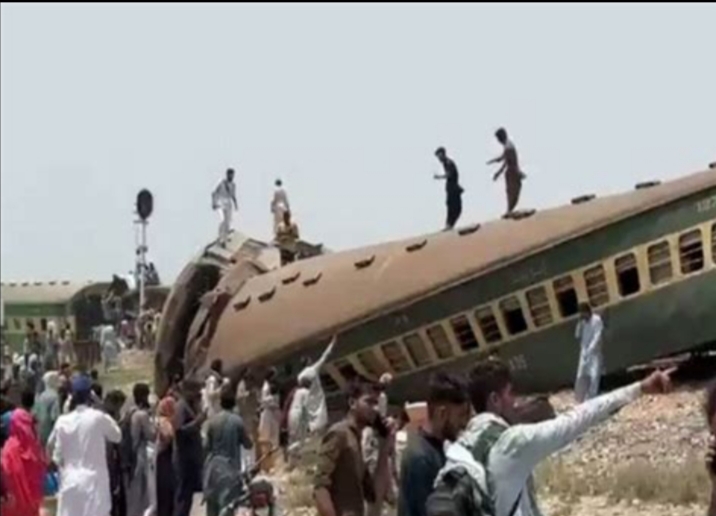The hijacking of a passenger train in Pakistan’s Balochistan province on March 11, 2025, has drawn national and international attention. This incident was orchestrated by the Baloch Liberation Army (BLA), targeting a train carrying approximately 500 passengers. In this article, we analyze various aspects of the incident, its impact, and the curr
Details of the Incident
On March 11, 2025, the Jaffer Express, traveling from Quetta to Rawalpindi, was targeted by BLA militants in Balochistan province. The attackers detonated explosives on the tracks, causing the train to get stuck inside a tunnel. At least 20 people were killed in the attack, including several military personnel, while the train driver sustained severe injuries.
The BLA claimed responsibility, stating that they had taken 214 passengers hostage, including many military personnel. They have demanded the release of Baloch political prisoners within 48 hours; otherwise, they have threatened to kill the hostages and destroy the train.
Government Response
Pakistan’s security forces launched an immediate operation and engaged in a standoff with the militants. So far, 27 militants have been killed, and over 150 hostages have been rescued. However, nearly 300 hostages remain in captivity, including women and children.
The government has yet to make an official statement regarding the BLA’s demands. Security forces have tightened the siege around the area, but rescue operations are facing challenges due to difficult terrain and communication breakdowns.
Who is the Baloch Liberation Army (BLA)?
The BLA is an insurgent group operating in Balochistan, fighting for the province’s independence and control over its natural resources. The group accuses the Pakistani government of exploiting Balochistan’s resources without benefiting the local population. The BLA has previously targeted government projects and Chinese investments, claiming they do not serve the interests of local communities.
International Reactions
The hijacking has attracted global attention. International human rights organizations have expressed concern for the safety of the hostages and urged all parties to exercise restraint. Some countries have offered support to the Pakistani government, while others have raised concerns over human rights violations in Balochistan.
Current Situation
As of the time of writing, clashes between security forces and militants continue. The top priority remains ensuring the safety of the hostages, but the rugged terrain and communication challenges are hindering rescue operations. Emergency measures have been declared in local hospitals, and special arrangements have been made for the treatment of the injured.
Conclusion
This train hijacking incident highlights the deteriorating security situation in Pakistan, particularly in Balochistan. It poses a serious threat not only to national security but also to regional stability. The government and security forces must ensure the safe release of the hostages while addressing the root causes of the insurgency in Balochistan. The international community also plays a crucial role in supporting a resolution to this crisis.
In the coming days, efforts will be needed to de-escalate the situation and secure the hostages’ release. This incident has once again emphasized the importance of peace and development in Balochistan, which is vital for regional stability and prosperity.

